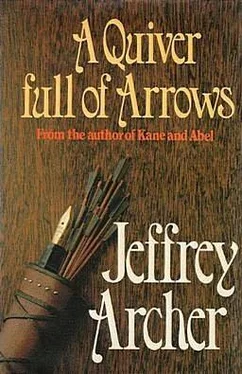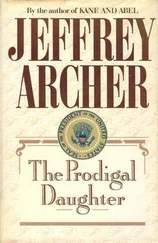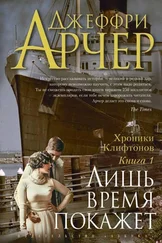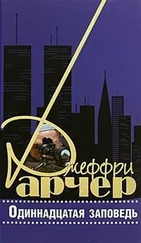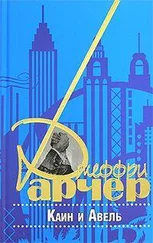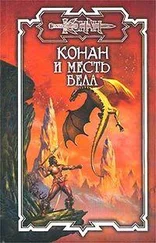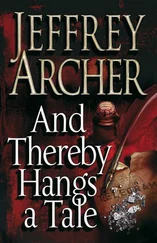One evening at five twenty-seven, when Septimus was closing the file on the last claim for the day, his immediate superior, the Deputy Manager, called him in for a consultation. Owing to this gross lack of consideration, Septimus did not manage to get away from the office until a few minutes after six. Although everyone had left the typing pool, still he saluted the empty desks and silent typewriters with the invariable “See you same time tomorrow, girls,” and hummed a few bars of Edelweiss to the descending lift. As he stepped out of the Great Gothic Cathedral it started to rain. Septimus reluctantly undid his neatly rolled umbrella and, putting it up, dashed through the puddles, hoping that he would be in time to catch the six thirty-two. On arrival at Cannon Street, he queued for his paper and cigarettes and put them in his briefcase before rushing on to Platform Five. To add to his annoyance, the loudspeaker was announcing with perfunctory apology that three trains had already been taken off that evening because of a go slow.
Septimus eventually fought his way through the dripping, bustling crowds to the sixth carriage of a train that was not scheduled on any timetable. He discovered that it was filled with people he had never seen before and, worse, almost every seat was already occupied. In fact, the only place he could find to sit was in the middle of the train with his back to the engine. He threw his briefcase and creased umbrella onto the rack above him and reluctantly squeezed himself into the seat before looking around the carriage. There was not a familiar face among the other six occupants. A woman with three children more than filled the seat opposite him, while an elderly man was sleeping soundly on his left. On the other side of him, leaning over and looking out of the window, was a young man of about twenty.
When Septimus first laid eyes on the boy he couldn’t believe what he saw. The youth was clad in a black leather jacket and skin-tight jeans and was whistling to himself. His dark, creamed hair was combed up at the front and down at the sides, while the only two colors of the young man’s outfit that matched were his jacket and fingernails. But worst of all to one of Septimus’s sensitive nature was the slogan printed in boot studs on the back of his jacket. “Heil Hitler,” it declared unashamedly over a white-painted Nazi sign, and as if that were not enough, below the swastika in gold shone the words: “Up yours.” What was the country coming to? thought Septimus. They ought to bring back National Service for delinquents like that. Septimus himself had not been eligible for National Service on account of his flat feet.
Septimus decided to ignore the creature, and picking up the packet of Benson & Hedges on the armrest by his side, lit one and began to read the Evening Standard . He then replaced the packet of cigarettes on the armrest, as he always did, knowing he would smoke one more before reaching Sevenoaks. When the train eventually moved out of Cannon Street, the darkly clad youth turned toward Septimus and, glaring at him, picked up the packet of cigarettes, took one, lit it and started to puff away. Septimus could not believe what was happening. He was about to protest when he realized that none of his regulars was in the carriage to back him up. He considered the situation for a moment and decided that discretion was the better part of valor. (Yet another of the sayings of Septimus.)
When the train stopped at Petts Wood, Septimus put down the newspaper although he had scarcely read a word, and as he nearly always did, took his second cigarette. He lit it, inhaled and was about to retrieve the Evening Standard when the youth grabbed at the corner, and they ended up with half the paper each. This time Septimus did look around the carriage for support. The children opposite started giggling, while their mother consciously averted her eyes from what was taking place, obviously not wanting to become involved; the old man on Septimus’s left was now snoring. Septimus was about to secure the packet of cigarettes by putting them in his pocket when the youth pounced on them, removed another and lit it, inhaled deeply and then blew the smoke quite deliberately across Septimus’s face before placing the cigarettes back on the armrest. Septimus’s answering glare expressed as much malevolence as he was able to project through the gray haze. Grinding his teeth in fury, he returned to the Evening Standard , only to discover that he had ended up with situations vacant, used cars and sports sections, subjects in which he had absolutely no interest. His one compensation, however, was his certainty that sport was the only section the lout really wanted. Septimus was now, in any case, incapable of reading the paper, trembling as he was with the outrages perpetrated by his neighbor.
His thoughts were now turning to revenge and gradually a plan began to form in his mind with which he was confident the youth would be left in no doubt that virtue can sometimes be more than its own reward. (A variation on a saying of Septimus.) He smiled thinly and, breaking his routine, he took a third cigarette and defiantly placed the packet back on the armrest. The youth stubbed out his own cigarette and, as if taking up the challenge, picked up the packet, removed another one and lit it. Septimus was by no means beaten; he puffed his way quickly through the weed, stubbed it out, a quarter unsmoked, took a fourth and lit it immediately. The race was on, for there were now only two cigarettes left. But Septimus, despite a great deal of puffing and coughing, managed to finish his fourth cigarette ahead of the youth. He leaned across the leather jacket and stubbed his cigarette out in the window ashtray. The carriage was now filled with smoke, but the youth was still puffing as fast as he could. The children opposite were coughing and the woman was waving her arms around like a windmill. Septimus ignored her and kept his eye on the packet of cigarettes while pretending to read about Arsenal’s chances in the FA cup.
Septimus then recalled Montgomery’s maxim that surprise and timing in the final analysis are the weapons of victory. As the youth finished his fourth cigarette and was stubbing it out, the train pulled slowly into Sevenoaks station. The youth’s hand was raised, but Septimus was quicker. He had anticipated the enemy’s next move, and now seized the cigarette packet. He took out the ninth cigarette and, placing it between his lips, lit it slowly and luxuriously, inhaling as deeply as he could before blowing the smoke out straight into the face of the enemy. The youth stared up at him in dismay. Septimus then removed the last cigarette from the packet and crumpled the tobacco into shreds between his first finger and thumb, allowing the little flakes to fall back into the empty packet. Then he closed the packet neatly, and with a flourish replaced the little gold box on the armrest. In the same movement he picked up from his vacant seat the sports section of the Evening Standard and tore the paper in half, in quarters, in eighths and finally in sixteenths, placing the little squares in a neat pile on the youth’s lap.
The train came to a halt at Sevenoaks. A triumphant Septimus, having struck his blow for the silent majority, retrieved his umbrella and briefcase from the rack above him and turned to leave.
As he picked up his briefcase it knocked the armrest in front of him and the lid sprang open. Everyone in the carriage stared at its contents. For there, on top of his Prudential documents, was a neatly folded copy of the Evening Standard and an unopened packet of ten Benson & Hedges cigarettes.
When the Grand Pasha’s first son was born in 1900 (he had sired twelve daughters by six wives) he named the boy Henry after his favorite king of England. Henry entered this world with more money than even the most blasé tax collector could imagine and therefore seemed destined to live a life of idle ease.
Читать дальше
